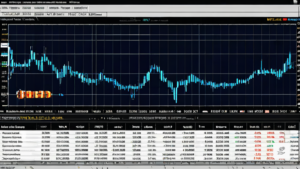The Emotional Rollercoaster of Trading: Myths, Truths, and Strategies for Success

The Myth of Emotional Suppression
In the realm of trading, emotions are often perceived as a formidable adversary, an unwelcome guest that threatens to derail our carefully crafted strategies. However, this perspective is fundamentally flawed. Emotions are an intrinsic part of the human experience, and suppressing them is not only futile but also detrimental to our success.
To effectively manage our emotions, we must first acknowledge their existence and embrace them as valuable allies. By fostering a healthy relationship with our feelings, we gain the power to harness their energy and channel it towards positive outcomes.
The Perils of Unbridled Emotions
While emotions can be a valuable asset, it is crucial to recognize the dangers of allowing them to run rampant. Unchecked emotions can cloud our judgment, leading us down a path of impulsive and potentially disastrous decisions.
Fear, anger, and greed are particularly treacherous emotions that can wreak havoc on our trading performance. Fear can paralyze us, preventing us from seizing profitable opportunities. Anger can fuel reckless revenge trading, while greed can blind us to the risks involved in chasing excessive profits.
Strategies for Emotional Mastery
The path to emotional mastery in trading is not without its challenges, but it is a journey that can yield transformative results. Here are some practical strategies to help you navigate the emotional rollercoaster of trading:
1. Self-Awareness and Reflection
The first step towards emotional mastery is developing a deep understanding of our own emotional patterns. Keeping a trading journal can be an invaluable tool for identifying the triggers that evoke strong emotions and the impact they have on our decision-making.
2. Mindfulness and Emotional Regulation
Mindfulness techniques, such as deep breathing and meditation, can help us cultivate a sense of calm and detachment during moments of heightened emotions. By practicing emotional regulation, we gain the ability to pause, assess the situation objectively, and make decisions based on sound judgment rather than impulsive reactions.
3. Risk Management and Discipline
A well-defined risk management strategy is essential for protecting our capital and preventing emotional decision-making from spiraling out of control. By setting clear rules for trade entries, exits, and position sizing, we can minimize the impact of emotions on our trading performance.
4. Seeking Support and Education
Trading can be an emotionally demanding endeavor, and it is important to seek support from others who understand the challenges we face. Joining a trading community or working with a mentor can provide valuable insights, encouragement, and accountability.
The Path to Emotional Mastery
Emotional mastery in trading is not a destination but an ongoing journey. By embracing our emotions, understanding their impact, and implementing effective strategies for managing them, we can transform them from a liability into a valuable asset. The path to emotional mastery is paved with challenges, but the rewards are immeasurable: increased profitability, reduced stress, and a more fulfilling trading experience.
Remember, the markets are constantly evolving, and so too must our approach to emotional management. By staying vigilant, adapting to changing circumstances, and continually seeking knowledge and support, we can navigate the emotional rollercoaster of trading with confidence and success.




